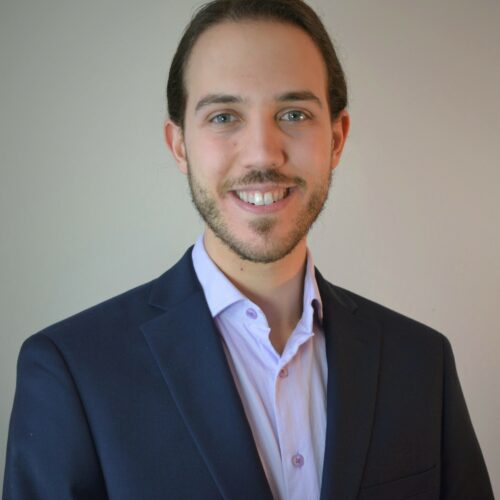Dean Carcone

Dean Carcone
Alumnus, MA (2016), Counselling & Clinical Psychology
“There is nothing more exciting than uncovering answers to new or fundamental questions.”
I grew up in a small town north of Toronto. When I started my undergrad at McMaster University, there were more people living on my dorm floor than on my entire street at home. During high school, I discovered my love for the human brain, and I strengthened my interest at university by enrolling in a double major — biology and psychology.
I am studying clinical psychology within the Counselling and Clinical Psychology graduate program. I am co-supervised by a member of the clinical faculty, Professor Anthony Ruocco, and an associate member in the Department of Psychology, Prof. Andy Lee. Prof. Ruocco is known for his work with borderline personality disorder, and Dr. Lee for his research into memory and perception. Both use neuroimaging to answer fundamental questions about how the brain functions. I look forward to contributing!
Working with these two supervisors presents a unique and amazing opportunity that I would never pass up. Their mentorship allows me to use neuroscience techniques to peer into not only the minds but the working brains of individuals afflicted with mental illness. The program itself is also new and fresh, placing a strong emphasis on research and evidence-based psychology. It aims to not just produce trained clinicians, but clinician scientists — the path I want to take.
The school is world renowned for its advancements in research; it is known for its high standard of education. One of the most appealing aspects of graduate study at U of T is the variety of affiliated organizations and research centres. Each one can provide many new and interesting opportunities for research and learning. I want to get as much as possible out of my time in graduate school.
Upon graduation, I plan to become a certified and practising clinical psychologist. However, I don’t think I could ever leave research behind. There is nothing more exciting than uncovering answers to new or fundamental questions. I hope to continue this as I help those afflicted with mental illness.
My advice to prospective students is to cultivate a unique set of skills. It is those skills, and the interests and aptitudes that they reflect, which will make you stand out in a crowd of your peers. When I interviewed for a lab position in undergrad, my supervisor was more impressed by the unusual math courses I had completed than my performance in his course.
My interest and experience in computer programming may have been as important to my graduate school application as my psychology credits. Learn what interests you and make yourself stand out.
